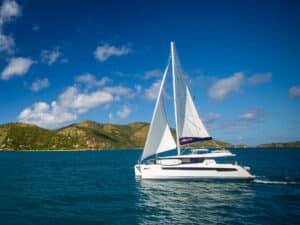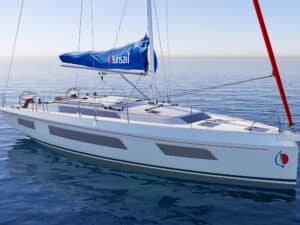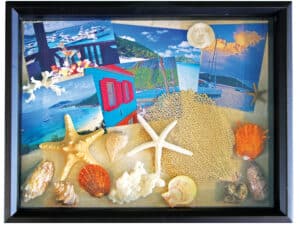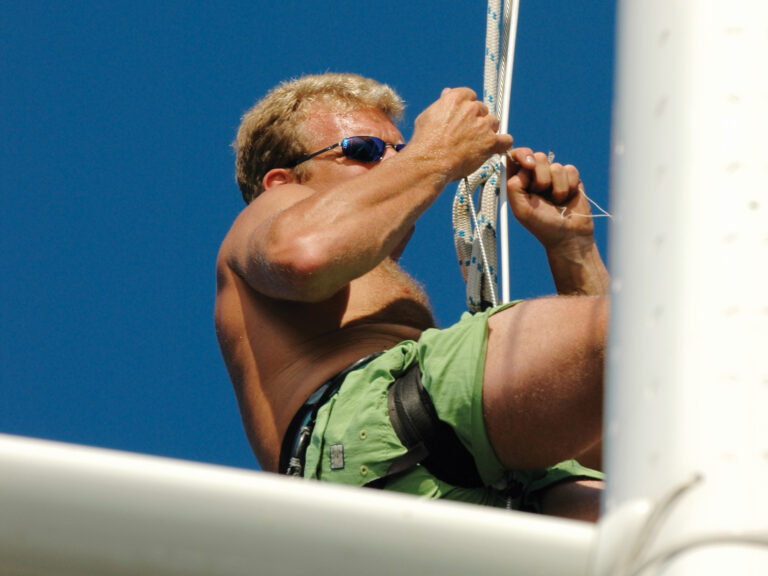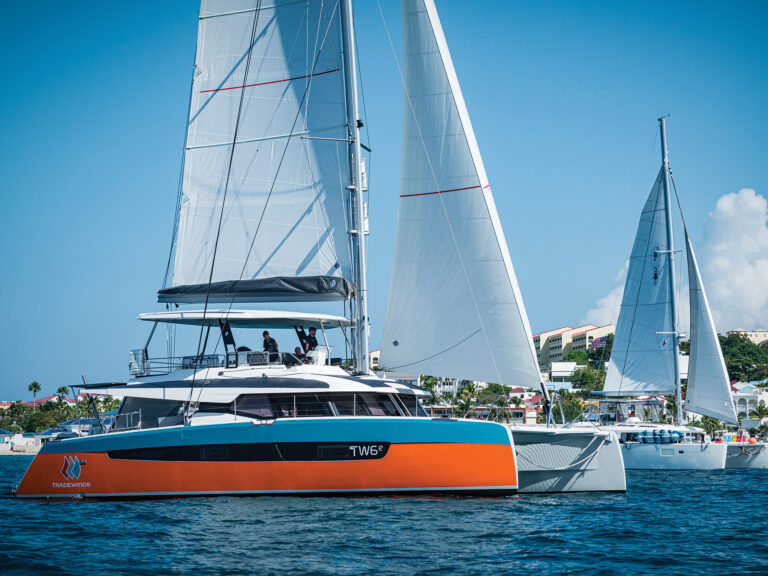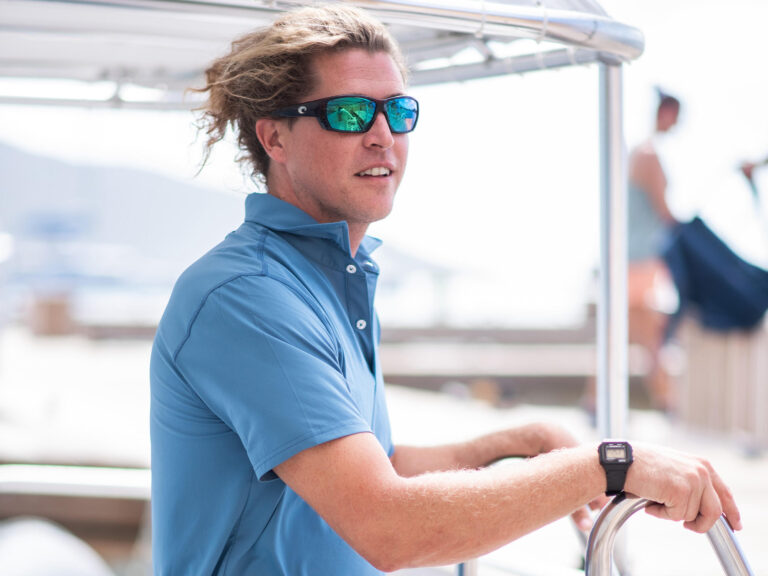The Moorings and other bareboat-charter companies have learned from long experience that relatively few charterers get into trouble, and the less cocky they are, the less likely they are to take risks. In the British Virgin Islands, especially, the cruising environment is somewhat like a childproofed living room. Yes, you can bruise yourself on the furniture if you rush around not looking where you’re going, but I sensed that in The Moorings’ view, if you’ve taken the Fast Track to Cruising course and follow the guidelines provided in the briefings, you’ll get by, have a great time, and build confidence and competence for engaging more challenging locales.
I can endorse this view up to a point, but I’d recommend that students take aboard the instructor’s oft-repeated advice to know their limitations and act accordingly; for example, first time out, take a professional skipper for a day or two to ease the stress level while getting reacquainted with the techniques and disciplines of sailing.
Although I saw myself as an observer, I, too, was there to earn the certificates, and soon after stepping aboard, I learned that the US Sailing certificate courses are book-intensive. Our texts were US Sailing’s Basic Cruising and Bareboat Cruising, and while they overlap somewhat in subject matter, jointly they provide a solid base of information from setting the sails to plotting a course, stowing provisions, fire safety, and diesel-engine maintenance.
After the books landed in my mailbox, I flipped through them, saying to myself, “Yeah, OK, hmmm, uh-huh,” but I began to pay close attention to David, our instructor, once I saw how much detail he was going into on every topic. The brochure said, “5 p.m., anchor down; personal time.” When we pulled into Manchioneel Bay, Cooper Island, on our first evening aboard The Moorings boat, it was dark, because we’d been on nonstop instruction and drills since boarding at 10 a.m. And David hadn’t finished with us yet: I prepared dinner while keeping an ear on “class,” which continued with the whiteboard over the cockpit table.
“My,” I thought, “he really means to get through both of those books in five days.” I was happy not to be coming to this program with as little background as my classmates. And I did a little bedtime reading, just to be on the safe side. In fact, whispering palms notwithstanding, reading was all that went on at bedtime.
I wasn’t worried about my ability to identify the parts of a diesel engine, having suffered contusions from most of them over my career, but I needed to cover myself for other topics in the exams. I thought I’d better know the book answers, because my first response to almost any question is to ask another question, so I can qualify the circumstances of the first.
And that’s the element that the Fast Track to Cruising, thorough though it is, can’t imbue into its students: experience. There’s no substitute for time spent on the water. Not until the physical and mechanical actions of sailing become second nature will the mind be free to take a broader view of situations and think from “outside the cockpit,” as it were. Which is why learning from a trained, professional instructor, someone who’s already at that level, will always be far superior to picking it up as you go along or relying just on books. A book can’t put a steady hand on your shoulder and say, “Relax. Think,” which is what David would do in situations in which it seemed only immediate action could avert disaster.
Over the course of 10 days of intensive study and sailing, Melissa acquired three certificates. That means a great deal of valuable information has passed through her eyes and ears and settled somewhere in her brain, some of it for instant recall and some to emerge later, perhaps when, to use David’s term, “learning opportunities” arise.
Would she be comfortable chartering a bareboat on her own? No, and because of the baggage I bring along–all the stuff I’ve absorbed over my career and everything I’ve forgotten–nor would I be comfortable if she did. But having watched her survive, struggling at times, her immersion, I know she, and, therefore, I, will be much more relaxed when we sail together in the future. I’ll sleep better knowing that if we have to bail out of the anchorage at night, she can confidently shackle the halyard into the headboard or operate the windlass, and she’ll know to which side to leave the markers and where we might look for shelter.
That will bring a little balance to my life, too.


